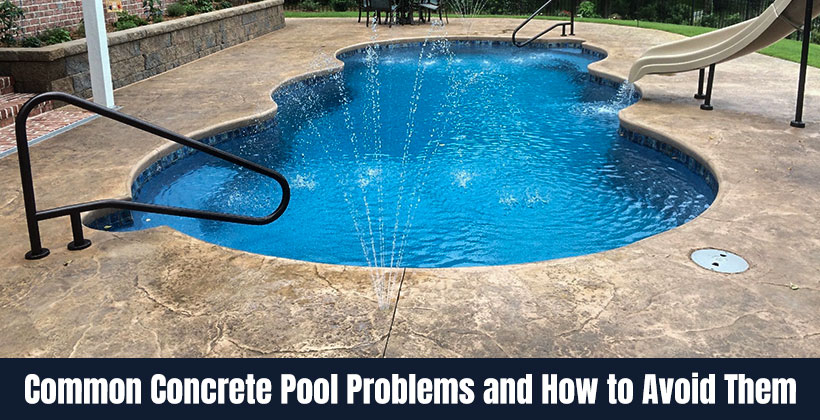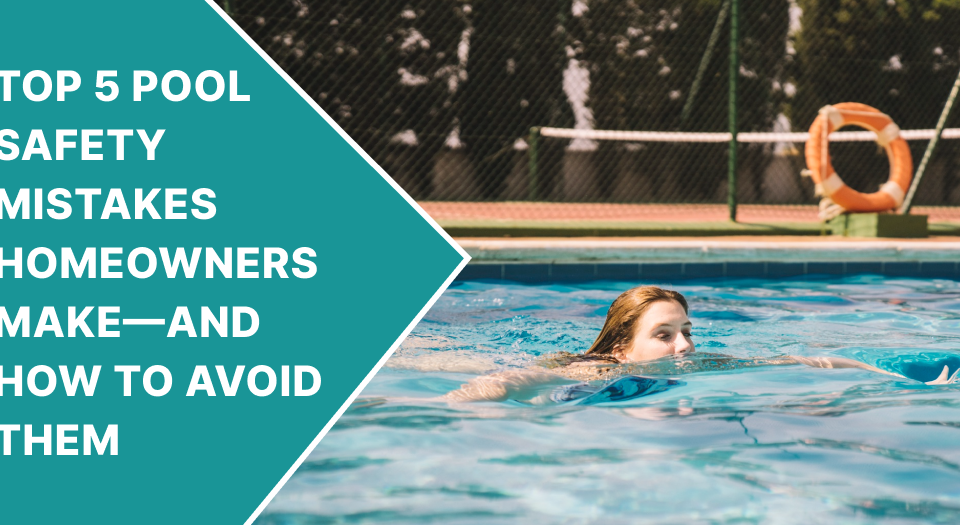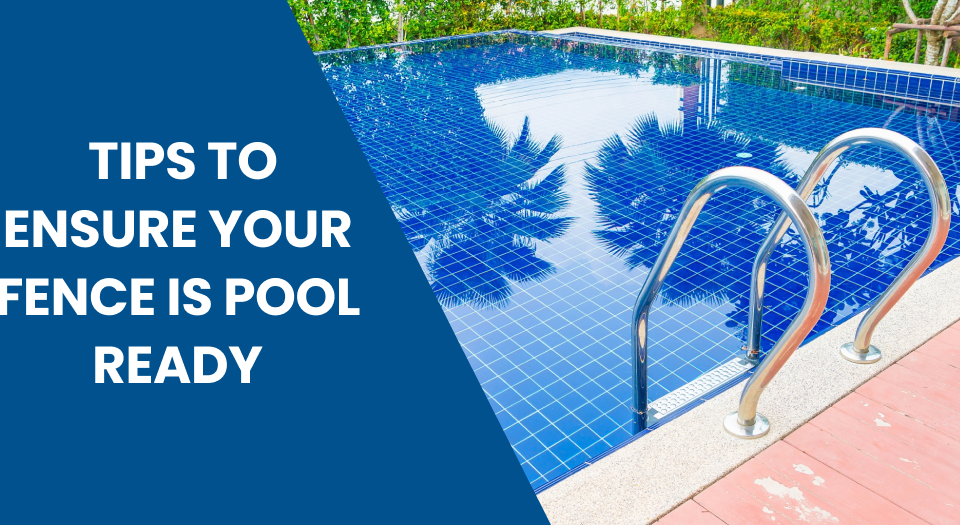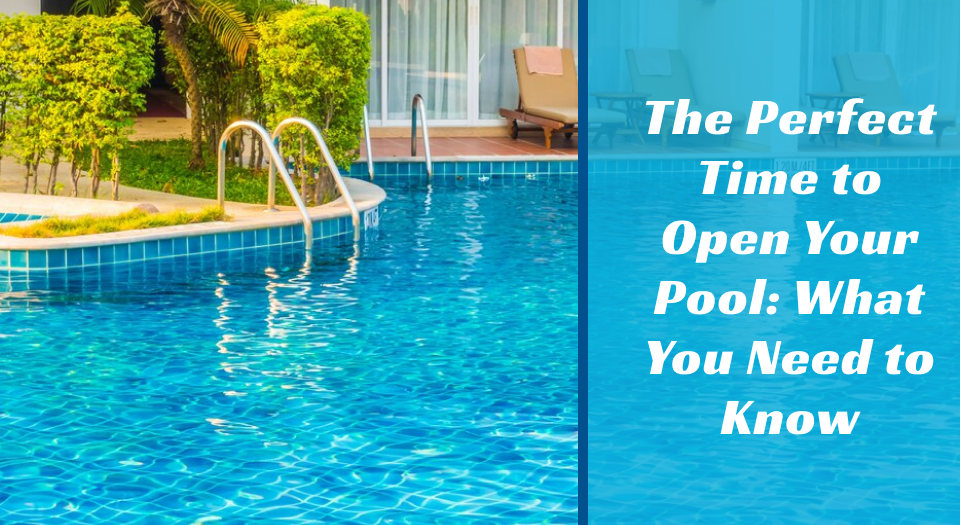
How To Treat Pool Cloudy Water?
March 16, 2021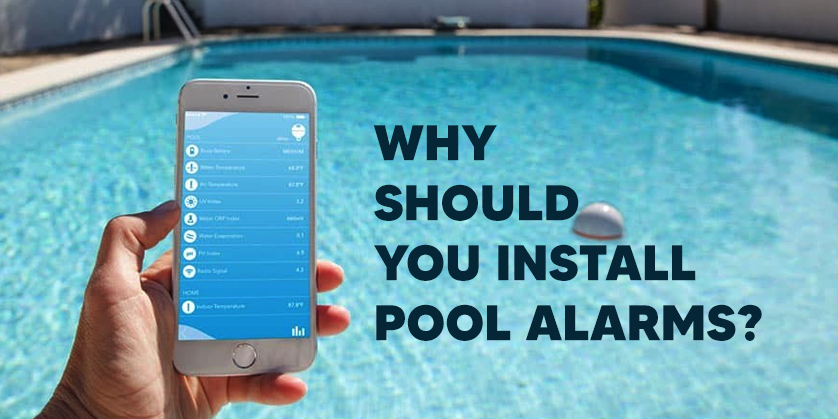
Understanding Why Should You Install Pool Alarms
April 15, 2021When it comes pool problems, every type of inground swimming pool has its share of problems. Fiberglass pools have depth/size restrictions, vinyl liner pools require frequent replacement of liner, and concrete pools have their drawbacks as well.
In this article, though, we will be discussing some problems with concrete pools you may not have considered before. The most common issues that you can face with concrete pools are:
- Excessively rough surface
- Structural cracks
- Craze (surface) cracks
- Scaling
- Spalling
- Popping up/floating
- Plumbing leaks
- Shifting/sinking of pool
- High maintenance
1. Excessively rough surface
Concrete pool surfaces are rough. And the surface can get rougher to delamination, rising pH levels, adverse environmental conditions, and excessive crazing, leading to issues like calcium nodules and pitting. You can fix the surface by sanding, shaving, or acid washing. However, you might need to replaster the surface if the roughness returns.
2. Structural cracks
This problem occurs due to incorrect design or construction. To avoid such a situation, you must install a pool that can withstand unstable or expansive soil. The inaccurately designed concrete pools may structurally fail and leak water.
3. Craze cracks
It’s a light surface crack that occurs due to shrinkage of the concrete. Although the cracks don’t result in leakage of pool water; however, excessive crazing can cause various issues, including algae, staining, algae, and calcium nodules. In this case, you might need to replaster the pool.
4. Scaling
Scaling is deposits/build-ups of calcium or minerals on the concrete pool floor. It can happen due to improper levels of pH, alkalinity, or calcium. This unacceptable rise in pH and calcium can also cause etching and calcium nodules, forming drips or mounds. You can avoid scaling of the pool by brushing the pool walls regularly. Also, make sure to pre-dilute acid before adding it to the water. It would be best to avoid adding salt in the pool for at least 30 days of plastering. Also, don’t allow the salt to sit as a solid on fresh plaster.
5. Spalling
A spall is a thin layer (1/8 inch or less) of the plaster surface that flakes or peels off, usually from the bottom side. It happens due to improperly timed troweling, over-troweling the surface, or adding excessive water while troweling. You can fix the pool by sanding that particular area. You might need to replaster the pool if spalling has occurred a in larger area.
6. Popping up/floating
The pressure of underground water or hydrostatic pressure can cause the pool to pop out or float. It can happen overnight and how high a pool pops up or floats up varies considerably. You can secure the floor by installing a hydrostatic pressure relief valve in the deepest part of the pool body.
7. Plumbing leaks
If something like this happens, you might need to tear out the entire area to find the leakage pipes. You can prevent leakage by monitoring the pressure in the pipes regularly. One way to prevent leaking is to pressure test the plumbing and ensure the plumbing is installed securely. However, plumbing leaks can still occur if the pool or patio moves.
8. Sinking Or Shifting Pools
Uniform movement in the ground is important to avoid sinking or shifting of concrete pool. Uneven movement can lead to structural cracks in the pool. The most common cause for this type of structural crack can be a long term leak eroding the soil on one end of the pool, causing only one end to sink. The next most common reason can be a pool that was built on uncompacted soil, or partially built on two or more ground conditions.
9. High maintenance
Concrete pools require significant money and time for maintenance compared to other pool types, especially fiberglass pools. The concrete pools need to be replastered every 10-15 years, which may cost you $12,000–$20,000 on average. Also, the pool uses more electricity and chemicals on a daily basis, adding up to your overall cost.
If you’re facing any of these problems with your concrete swimming pool or planning to hire someone for the pool’s maintenance, contact Life Saver Poolfence experts!

